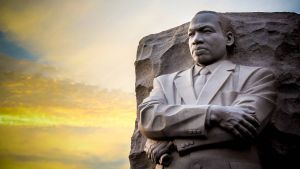During Women’s History Month, Fair360, formerly DiversityInc is honoring a series of woman innovators and history makers like Wilma Mankiller, who are often overlooked in mainstream media coverage and history books. Check back throughout March to learn about more important figures.
Born: Nov. 18, 1945, Tehlequah, Oklahoma
Died: April 6, 2010, Adair County, Oklahoma
Best known for: Being the first female Principal Chief of the Cherokee Nation
Wilma Mankiller’s great-grandfather survived the deadly “Trail of Tears,” the forced removal of Native Americans westward between 1830 and 1850. Generations later, Wilma was elected as the first woman to be the Principal Chief of the Cherokee Nation. During her career, she advocated for community development, self-help, education and healthcare programs that uplifted the Cherokee Nation.


















